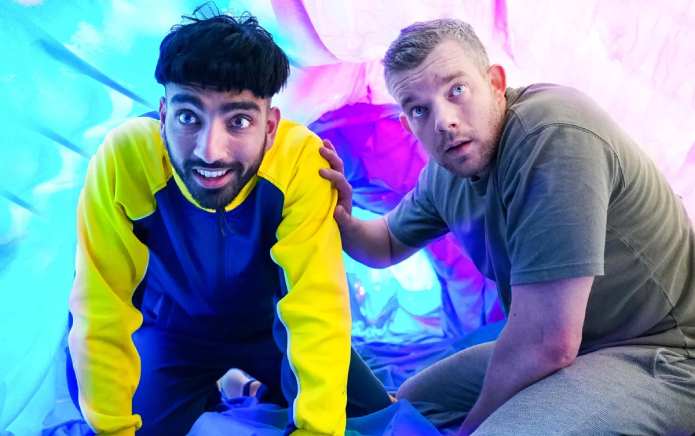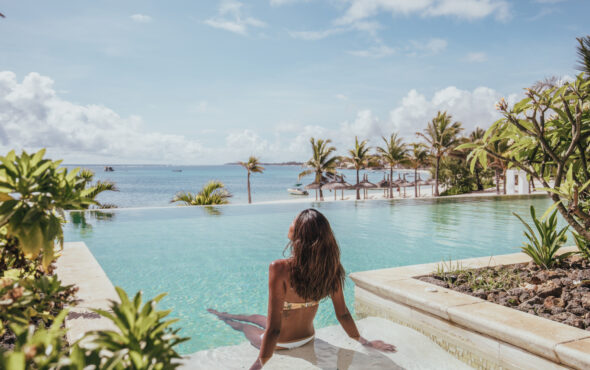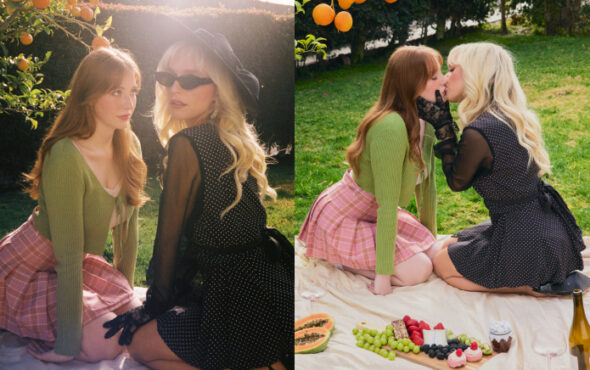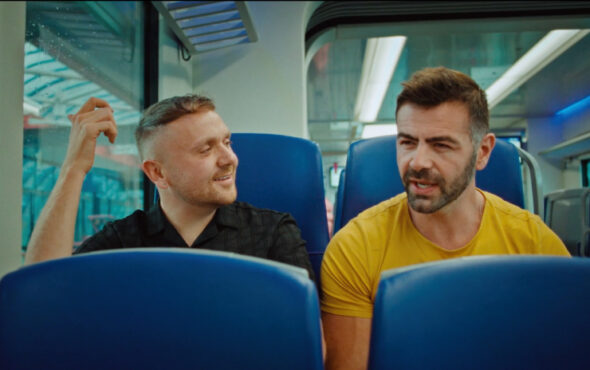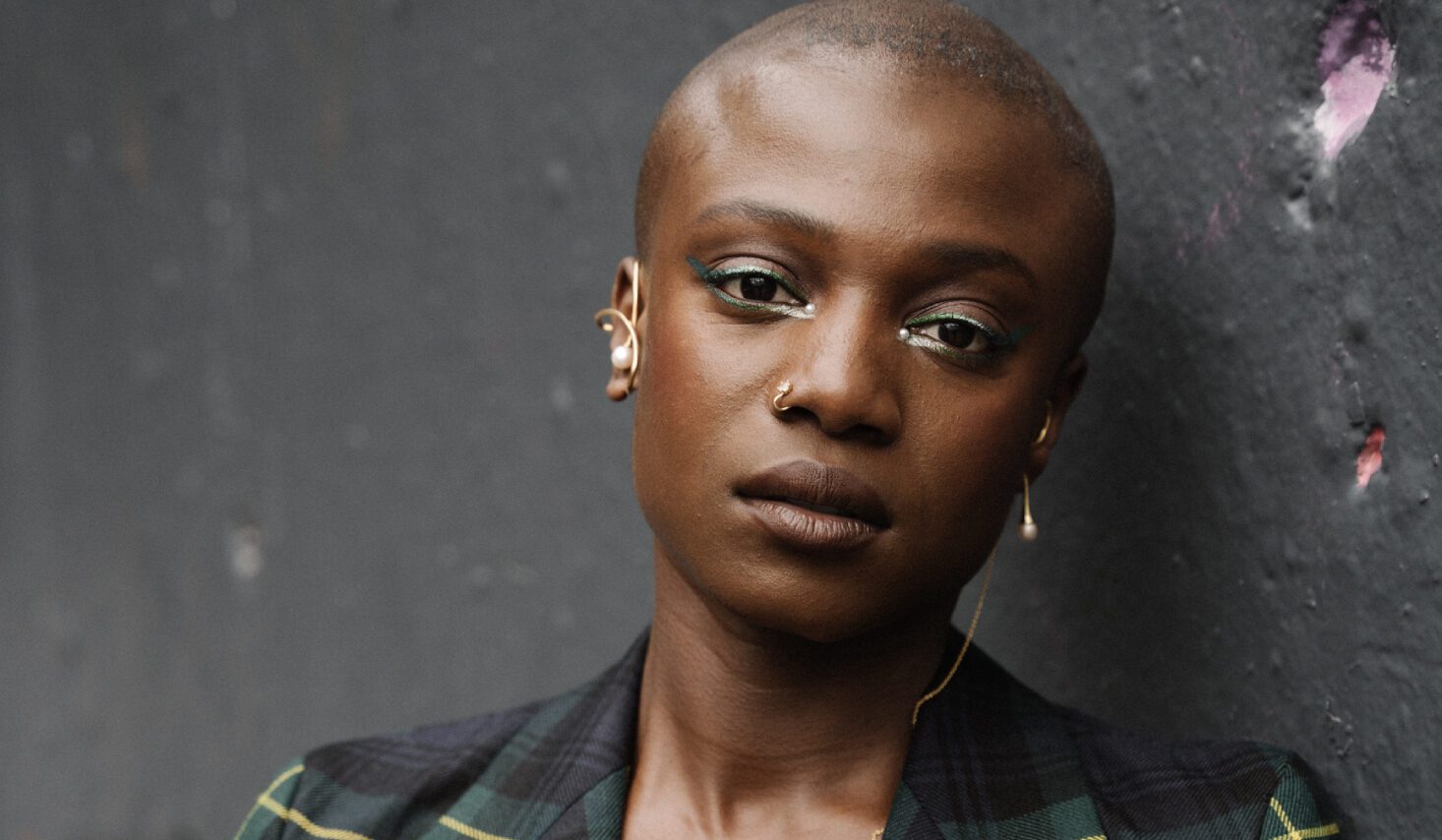
As a ‘gender-fluid, masc-presenting’ actor, Colette Dalal Tchantcho can’t stress how rewarding it was for them to play a queer character on No Escape. “It’s everything when you come to work and you’re doing something that you love and they say, ‘We see you. We accept you. Let’s figure out how to do this and bring yourself to your character,'” she tells GAY TIMES. “Not a lot of people get that in this industry.”
Based on Lucy Clarke’s best-selling novel of the same name, No Escape stars Abigail Lawrie and Rhianne Barreto as Lana and Kitty, two best friends who, after committing a mysterious crime, have fled their lives in the UK. The duo find refuge on a yacht sailing across South East Asia, The Blue, which also consists of Aaron (Jay Ryan), Denny (Sean Keenan), Heinrich (Elmo Anton Stratz) Joseph (Narayan David Hecter) and Tchantcho’s queer character Shell.
Tchantcho shares that the “only reason” they boarded the project – besides their admiration for Clarke’s novel – was “because the queer story was so important, especially the way that it’s presented”. The actor, who previously starred in Sky Atlantic’s Domina and Starz’s Dangerous Liaisons, adds: “It was important that we got it right and did it justice, and that it was honest, relatable. Yes, there are plenty of stories within the community that are horror stories, but not all of our stories are like that.”
Read ahead for our interview with Colette Dalal Tchantcho, where they discuss how crucial it is for the LGBTQ+ experience to be normalised on-screen, why filming No Escape was – at times – “scary as hell” and their upcoming celebration (and education) of the Afro-Arab community in their forthcoming show Dreamer. (Spoilers ahead.)
Colette, I have to say: if the characters on No Escape listened to Shell then they wouldn’t be in this goddamn mess.
Exactly! Exactly my thoughts. There were also times where I was questioning why Shell was on the boat. Does she have a past that’s a bit suss? As Narayan’s character Joseph says, “We’re all running away, aren’t we?” What is Shell running away from that’s got her on this boat? Why does she adhere to whatever Aaron says? She does support him all the way through, she’s like his right hand. I wonder what skeletons she has in her closet.
My impression was that Shell and Aaron have known each other for a long time. I assumed they were best friends or lovers. Following on from what you said, what is your perception of Shell’s journey? How did she come to be on this boat?
Me and Jay were talking about it quite a lot at the beginning of the process, and we kept on building on our backstory as the series went along. Jay is amazing, he’s such a seasoned actor that he brings out the best in any of his scene partners. I give my commendments – is that a word? – because it made my clocks turn. We decided that they met long before at a boating training school and had parted ways, but once Aaron inherited this boat, the first person he called was Shell. They were probably the most original crew members of the boat. His relationship with Denny is a bit sketchy, so I feel she came into the family fold and mediated where she can, but probably thinks Denny is a bit of an asshole as well. And she’s an empath, isn’t she? Everything that Aaron goes through, I think Shell has endless empathy for him and is able to chime in when he’s in on a mad one.
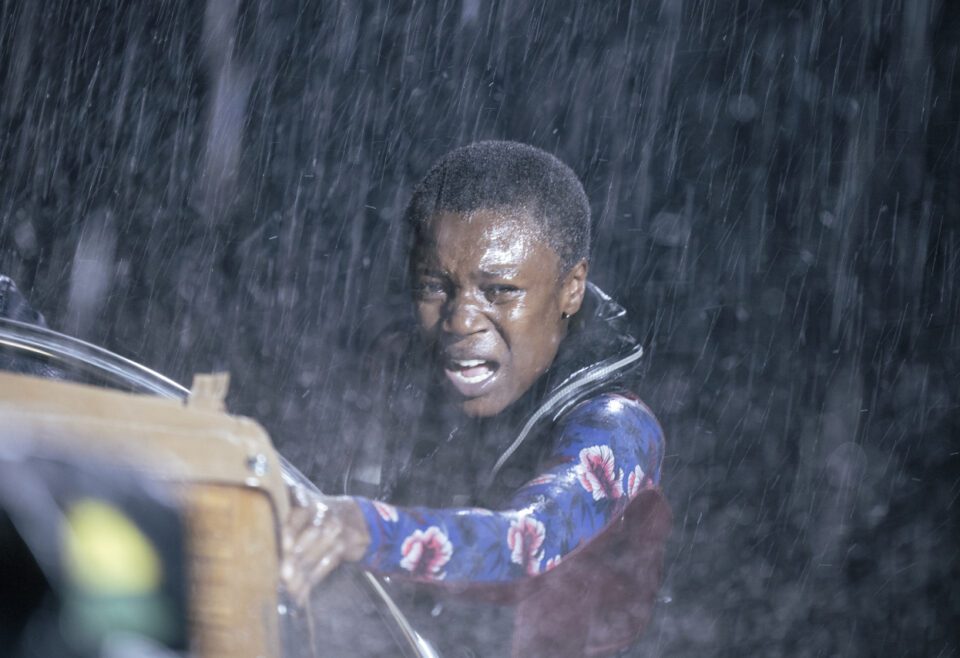
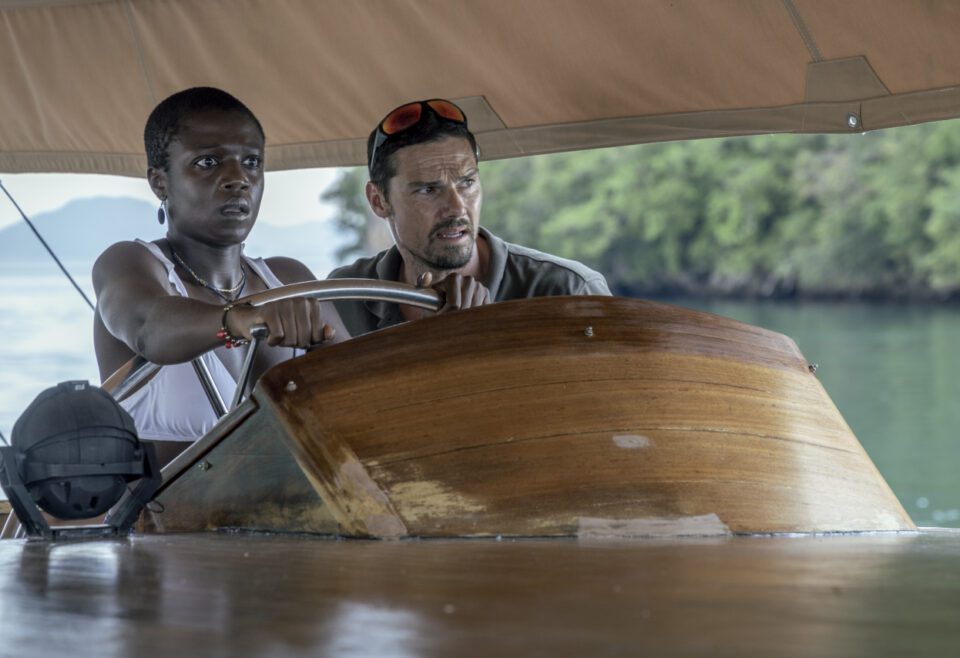
I enjoyed how No Escape often left a lot of elements open to interpretation. They planted enough seeds for us to understand the characters’ motivations, without the need for flashbacks and exposition.
The audience is intelligent. That’s why I love about shows like this because not everything has to be stringed together for you.
As the series progresses, Shell forms a romantic connection with Kitty. What do you think they saw in each other?
What’s interesting is that Kitty comes onto the boat not necessarily queer. Shell automatically recognises an inclination of something troubled within her, and as an empath, reaches for her. There’s a lot of times where Kitty is just not interested. Her primary focus is her best friend, Lana. We’re passing ships, constantly trying to connect. Kitty is not ready to open up in that way, but when she’s at her darkest moments, she remembers and calls on Shell’s kindness. I definitely empathise with that. When you have lovers, you never know where they are and what their baggage is. Sometimes, it makes sense and sometimes it doesn’t. Whatever Kitty was going through, Shell wanted to soothe. Kitty doesn’t give into that right away, but eventually does and they hold themselves through the last moments of this. Until this day, I question their relationship but it’s a very relatable one, I think. I don’t entirely know, but same as every other relationship in your life, sometimes you fall together.
In No Escape, sexuality is never presented as an issue. Kitty didn’t have a huge coming out moment, Shell didn’t experience ignorance of any kind and none of the characters suffered because of their sexuality. How important is it for audiences to have more normalised queer narratives?
The only reason I had ever come onto the project – other than Lucy Clarke’s original story – was because the queer story was so important, especially the way that it’s presented. Like you said, I didn’t want it to be an issue because I just live my life. I don’t walk into every situation like, ‘By the way…’ I just love who I love. I didn’t want there to be any stereotypes of being queer for survival, all of that naff stuff. It was important that we got it right and did it justice, and that it was honest, relatable. Yes, there are plenty of stories within the community that are horror stories, but not all of our stories are like that. There’s plenty of that out there, so let’s find a balance. Luckily, I feel like we were able to strike that and I’m really thankful.
The fact that I have to say “how important is it?” shows how important it is. Whenever I see normalised queer stories on-screen, I am still – in 2023! – shocked.
It speaks volumes to where we are, for sure. For instance, Heinrich and Denny have a kiss whilst we’re having a party, and they handled that so professionally. We were all so close and trusted each other, and we had an intimacy coach called Tandy who had all these amazing exercises that, by the time we got on set, we were able to improvise and find our natural ways. It’s all a trust fall for us actors, right? Not necessarily everyone shows up on set and is exactly how their character is. I luckily am, but I was the most obvious queer-presenting person so I was really thankful for them to have curated this space so safely.
This is the first time you’ve played a queer role. As a queer person, how did this experience differ from your other projects?
Amazing. I played a man before, so I’ve already started the streak of going against norms. Also, being masc-presenting – I consider myself genderfluid – it was great to be myself. So many times, I’ve played high femme in this industry and people wanted me to continue doing that. I’m a masc-presenting biological woman who loves makeup… Make it make sense! But, it’s just how I feel. I really appreciate being able to be myself. Wardrobe came together, even being able to shave my head… Shell wasn’t always in tops like you see, she played around with wearing earrings – one earring, which I do quite often. The whole team was so collaborative in trying to find how we authentically represent this character. And, they were willing to be challenged and informed.
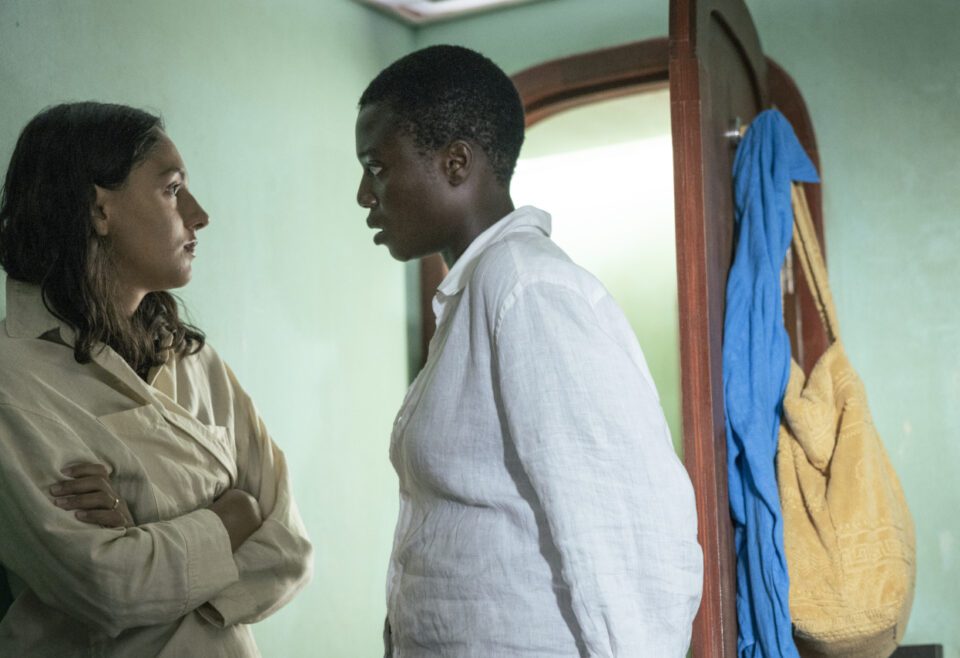
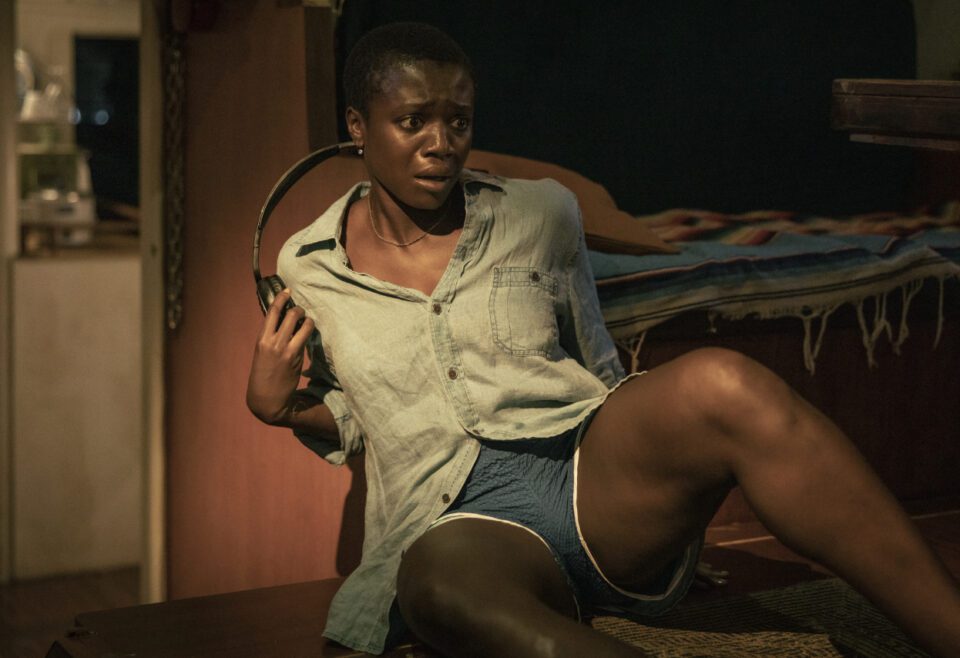
You went from being in drag, basically, on Dangerous Liasions to being so stripped-down…
That part! That part, exactly. Listen, don’t get me wrong, I love 16th century French drama. I love putting on a corset and a wig but like you said, presenting as high-femme is drag for me. It’s everything when you come to work and you’re doing something that you love and they say, ‘We see you. We accept you. Let’s figure out how to do this and bring yourself to your character.’ Not a lot of people get that in this industry. It’s changing. I’m glad to be amongst the projects and parts that are challenging that.
Colette, we need to talk Shell’s fate. The final episode had me shaken and I was terrified that she was going to die. How did you react when you read the script?
That day was so solemn for me because there’s an emotional space that you need to get to and it’s hit or miss, like, you don’t have any more filming dates. You either do it or you don’t, so that was weighing on me. I dug into my training for that. As simple as it was to think about someone you really love being in that predicament… For me, my most loved person in the whole world is my brother, who was able to come out to the shoot after eight years of not seeing him. I knew he was coming, but COVID happened and we weren’t sure if he was able to come or not, and I hadn’t met his kids yet. I dug into, ‘What if my brother was to get shot?’ There were a couple of stunts that were really scary, like jumping into Thai water. You don’t know how many jellyfishes we saw in that water! All of the stunts that you see, every single one of those actors jumped into that water. It was scary as hell. We had a marine team on standby, but who’s going to stop a shark coming out from the bottom?! I don’t know how these things work! So, I was really scared. I dug into that. In times like that, you rely on your scene partner. I’m looking at Sean with the gun and watching his deranged face… It’s a prop gun, but it’s still scary. If you’ve ever had a gun pointing right at you, things happen to you. Seeing that blood squirting out of my shoulder, there were so many things that you could feed off of and it made it so real. At the end, we had to centre ourselves and that’s where Tandy comes in as well, because we talked a lot about, ‘How do you go back [to normalcy] at the end of that work day?’
It hasn’t been confirmed, but if it does, would you be on board for a second season?
Because Shell’s alive, yeah. I would definitely do it. If [executive producer] Elaine Pyke called me up like, ‘Yo, what’s up?’ then I would love to be part of it.
For my final question, I wanted to talk about your upcoming show Dreamer, which is described as a “semi-autobiographical performance of urgent witness about three Black women in Arab society”. What can you tell me about the show and what audiences can expect?
I started this show in 2016. At the beginning, I didn’t know what I was doing! All I knew is that I wanted to tell a story about my background. I’m Afro-Arab, Kuwait and Cameroonian. I got tired of never being cast as an Arab or a queer Arab. I think we’re fairly invisible people, still. The world knows about Black British people and Black American people and Latinx narratives, but Afro-Arabs, we are still way behind. I thought to myself, ‘I am a diviser and I’m now acting quite a bit – why don’t I just make a piece about this?’ It’s a multi-layered, immersive narrative and it mixes mediums of concert and traditional theatre. It’s just showing what our joy and suffering looks like, and humanising us as people that you would be able to recognise and not categorise us when you see us out and about. We’re diverse as Black people and I just wanted to contribute something.
How do you want the show to impact those who see it?
I just want them to come away with being able to identify with us and having a nice brief history of who we are and what we look like. And, to be able to use their empathy and humanity to become allies to us. Us being behind in all of the movements that we’ve seen since the protests, we need allyship and more than just us to push us forward. That’s my greatest takeaway, and that we are frickin’ creative people! I didn’t get here on my own, I come after so many creative people and people who know me from back home will know my family for being creative. Get to know us. We can contribute to the creative sphere.
You can buy tickets for Dreamer here.
